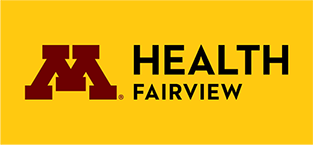|
Bridging the Gap: Developmental Considerations for the Infant with Congenital Heart DefectsDate: Tuesday, October 21, 2025
Intended Audience: NICU therapists OT, SLP, PT
Course level: Intermediate
Check in time: 4:30-5:00 pm (CST)
Course time: 4:45-9:00pm (CST)
Location: Live webinar
Total Contact hours: 4.0 (.4 ASHA CEUs)
SLP Satisfactory Completion: Participants must attend the entire course and complete the course evaluation, including the intent to change statement, within 30 days to receive a certificate of completion. If the course is not attended in full, the CE hours on the certificate will be adjusted accordingly. Participants who do not attend the course in full cannot participate in the ASHA CE registry.
PT: Course will be submitted to the MN Board of PT for approved credits. (Submitting credits through the MN Board of PT does not guarantee full credits will be approved by the board
OT: You will receive a certificate of course completion with total CE contact hours. M HEALTH Fairview is not an approved provider through AOTA and has never been for distance learning. You may still submit the hours towards your licensure and receive a certificate of completion with all information provided to submit. For additional information about CE requirements for license, please see MN Statute 148.6443: https://www.revisor.mn.gov/statutes/cite/148.6443
MN statutes 143.6443, subdivision SUBD.2 “Standards for determining the qualified education activities” will continue to be utilized in determining appropriate OT related CE courses.
(Submitting credits through the organizations does not guarantee approved credits or the full credits. All participants will receive a certificate of completion which you may be able to use towards your professional license).
Cancellation Policy: Cancellation Fee will apply. Instructor
Holly Schifsky, OTR/L, CNT, NTMTC, CBIS is an Occupational Therapist who has worked in pediatrics for the past 27 years with the past 16 years in a level IV NICU. She is a Certified Neonatal Therapist, Certified Neonatal Touch and Massage Therapist, Certified Brain Injury therapist, an active member of National Association of Neonatal Therapists, and has completed 6-month mentorship in in infant/child NDT. She has worked within the NICU and NICU follow-up clinic to maximize patient and family outcomes for the most complex premature and medically fragile term infants. Holly received her Bachelor of Science degree in Occupational therapy from the University of North Dakota in 1997. She has dedicated her career to clinical care and advancing developmental care practice patterns for all multidisciplinary team members. She has presented at many regional and national conferences including National Association of Neonatal Therapists, American Physical Therapy Combined Sections Meeting, Audrey Harris Vision NICU conference, and the University of Minnesota NICU conference. She provides Developmental Care, Feeding Intervention, and NICU education throughout the country. She is a faculty member for Neonatal Touch and Massage; Education Resources Inc; and Manual Edema Mobilization. She is the recipient of the NANT Clinical Excellence award in 2018. Financial Disclosures: Holly Schifsky receives a fee for speaking and instructing on this topic. Course Description
This intermediate course will focus on the cardiopulmonary implications for premature or medically fragile infants. The course will focus on congenital cardiac conditions, medical/surgical management, and rehabilitation interventions to maximize the infants developmental and feeding skills. Discussion regarding primary heart repair and staged palliative surgical interventions with treatment considerations for each care plan. Clinical assessment and treatment skills will be presented that will assess the infant’s physiological stability, evolving motor control, sensory stability, and transition to oral motor skills that support feeding. This course will advance the critical reasoning skills of the pediatric therapist to support the infant’s ability to obtain foundational motor and sensory skills. These skills include the ability of the infant to cough, produce audible phonation, oral motor skills, swallow skills, trunk facilitation, gestational age-appropriate positioning/handling to support the emergence of gross motor skills for postural stability. We will discuss current literature as relevant to this topic and apply a systems theory approach for case study treatment planning. Learner Outcomes:
1.Discuss anatomical and kinesiological developmental changes for the newborn chest wall as related to infants with congenital heart defect
2.Discuss impact of prematurity and cardiopulmonary co-morbidities on chest wall development and efficacy of movement development
3.Identify the different classifications of congenital heart defects most common in infants
4.Assess the effects of surgical heart interventions on gross motor movement, trunk development, swallow, and feeding as related to infant development
5.Incorporate postural support with positioning and handling of infants for improved chest wall mobility post heart repair during feeding and gross motor movement
Outline 4:30pm-4:45pm Registration
4:45 pm-6:00pm Typical Development of the infant chest wall
6:00pm-7:00pm Cardiopulmonary system of the premature or critically-ill term infant: anatomical differences, congenital heart defects, and vascularization.
7:00-7:15pm Break
7:15pm-8:00pm Assessment/Treatment Techniques: integration of sternal precautions
8:00pm-8:45pm Assessment/Treat techniques: Oral motor/oral feeding
8:45-9:00pm Literature review to support best practice and Q&A
REGISTER FOR THIS COURSE
|


